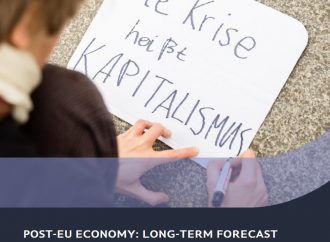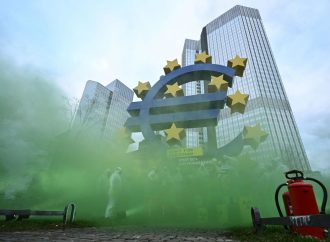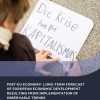An energy crisis has triggered a cascade of structural issues which have adversely impacted the competitiveness of industrial sectors. While a full-fledged recession has yet to manifest, there are numerous indicators signaling to European Union authorities and the public that a systemic crisis is unfolding before our eyes.
An energy crisis has triggered a cascade of structural issues which have adversely impacted the competitiveness of industrial sectors. While a full-fledged recession has yet to manifest, there are numerous indicators signaling to European Union authorities and the public that a systemic crisis is unfolding before our eyes.
European Union countries are ceding their position as global manufacturing leaders. The pace of export growth from Europe is decelerating, and export prices are susceptible to the erratic fluctuations of energy costs. Energy-intensive sectors are not merely facing their own downturns, with pronounced declines, stagnation, and reduced exports; their contraction is pulling numerous other sectors downward, risking extensive layoffs.
Industrial enterprises are progressively relocating outside Europe. Manufacturers are finding it increasingly arduous to compete for market niches against China and the protectionist inclinations of the United States. In a quest for stability, many are opting to expand investments and shift their manufacturing bases to these countries. Waves of insolvency are sweeping across Europe, destabilizing the keystone of European society – the middle class.
The prospect of subsidizing future programs, including those in industry, is becoming more challenging, as the servicing of national debt is projected to double by 2026. Europe’s investment allure is waning; the GDP of its industrial nations is either shrinking or stagnating, inflation remains high, business activities continue to recede, and the sentiments of producers are far from optimistic.
The energy sector is navigating a landscape fraught with fluctuating external factors. The volatility of the gas market is influenced both by climatic variables and China’s economic trajectory. The expansion of renewable energy sources is progressing at a less-than-ideal pace and is encountering infrastructural and environmental constraints. The world is entering a competitive scramble for the critical resources of the ‘green transition’, with the EU lagging behind. Essentially, Europe lacks the requisite stable capacities for industrial development both presently and in the nearest future.
The primary objective of our research is to unveil obscured realities and pave the way for pragmatic decisions at this pivotal juncture in Europe’s future trajectory.













